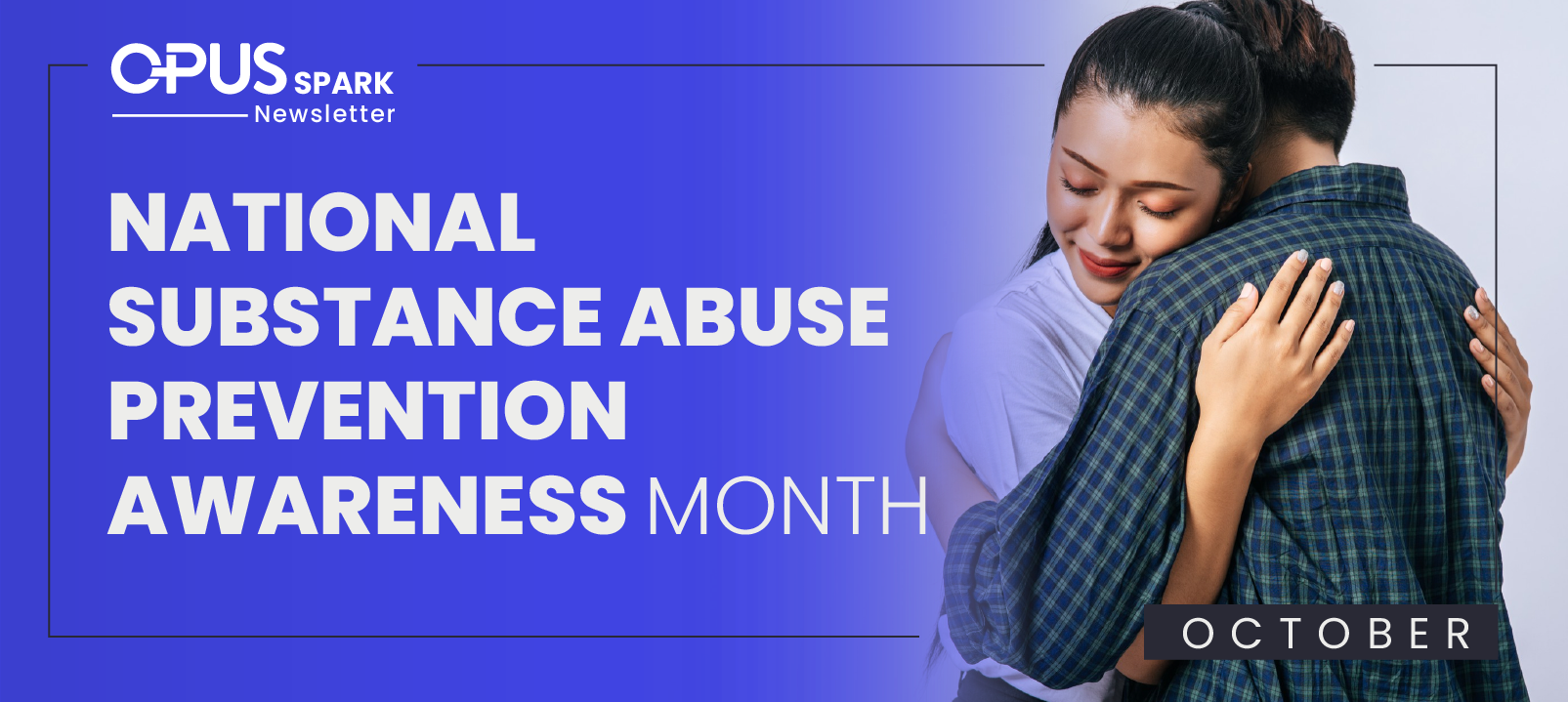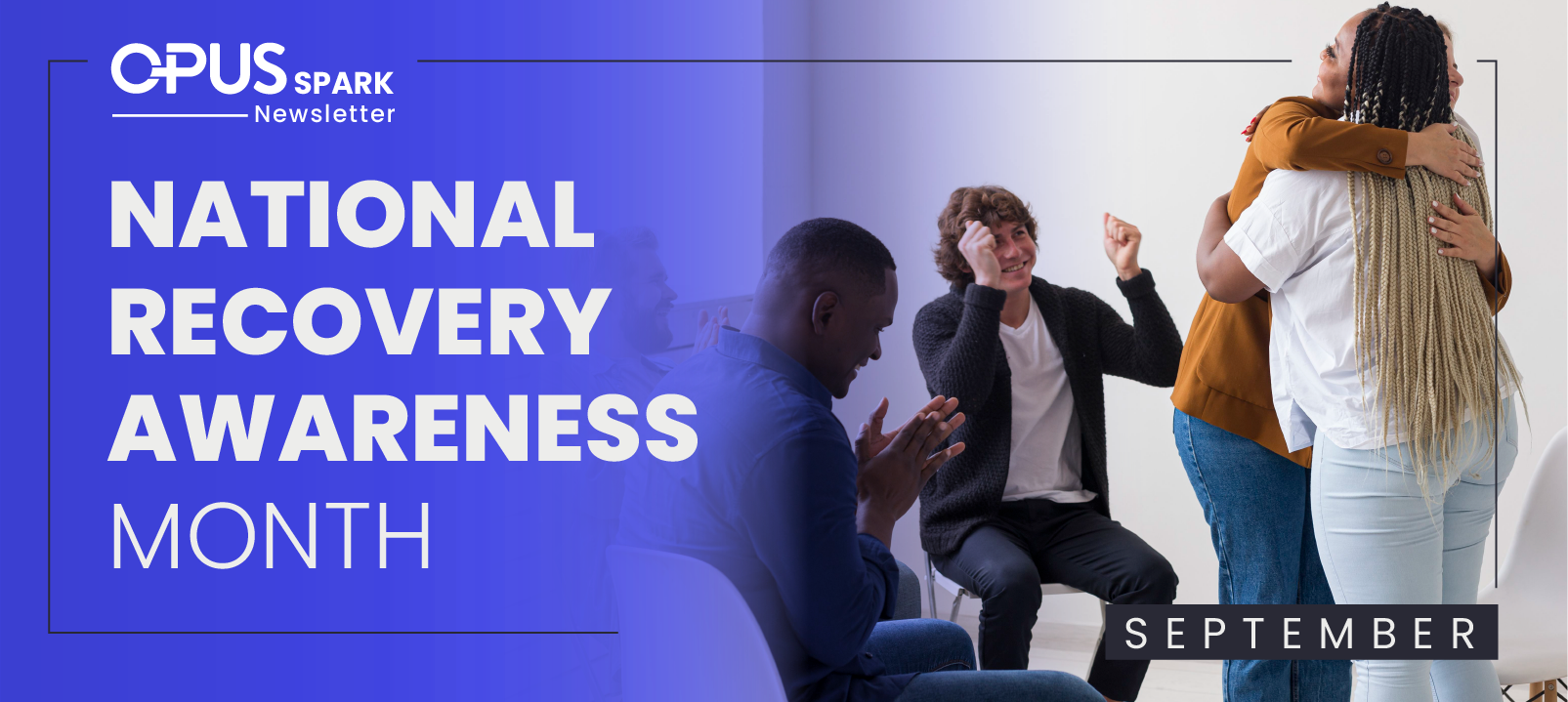#MentalHealthMatters Day in the Life - Marc Kantor the Intervention Expert
Opus Behavioral is celebrating National Recovery Month by sharing stories of brave families and employees impacted by inpatient treatment and outpatient recovery. Interviews were conducted by Opus employees to share insights into what mental health therapy includes and why
#MentalHealthMatters
Select names of participants have been changed for confidentiality.
On a breezy, early Florida morning, a Marc Kantor gets out of his car parked in a suburban driveway and walks to the front door of a modern, two-story home. He knocks on the door knowing his arrival is eagerly being anticipated by a family in crisis because of their 25-year-old son’s addiction to marijuana and opioids. Marc is there all day preparing the family for the upcoming intervention planned for the next morning.
“Good morning – how are you feeling?”
“Nervous, I haven’t slept all night. everyone is here and ready to get started. There’s coffee if you want some”
Substance Abuse Disorder
Marc Kantor helps families struggling with addiction get their loved ones into treatment. Prior to South Florida Intervention, he enjoyed a successful commercial real estate career in Washington D.C. for 22 years before relocating to Boca Raton with his wife and daughter. Marc always felt there was a greater calling for his professional purpose.
“Addiction is a chronic problem in our society. I started doing interventions part-time after participating in an intervention for a friend. I could see the impact it had on my friend’s family and how him agreeing to accept treatment renewed the family’s hope, so I dedicated my time to formal training about substance abuse treatment.”
Despite a burning desire to do pursue another career, Marc accepted another job in commercial real estate career after moving to Florida from D.C., but quickly realized the health problems associated with substance use disorders and illegal drugs were getting worse across America.
“One day my daughter said to me “why don’t you help people with intervention again?” and I saw the answer right in front of me. There were many families I knew then that were struggling with alcohol or drugs, or even with prescription drug abuse.”
Drug Abuse
Marc begins his day by driving to the house of a family where an intervention is scheduled for this evening. He has been working closely with Judy, the married spouse of an alcoholic and drug abuser.
“I’m very focused when an intervention is scheduled,” says Marc. “I spent the day with a family getting prepped for our evening and discussing substance abuse. There are lots of moving pieces that impact patient care during an intervention. It begins with the entire group setting the stage for a positive ending.”
Marc shows up at the house after Judy’s husband, Phil, has left for a 45-minute drive to his office. Just after 8:30am, Marc begins to help Judy pack a suitcase of items her husband will need inside the therapy center.
“I start my morning by helping Judy get organized and then we will head to the family pre-intervention meeting around 10am to begin our meeting exercises with the group.”
After loading the suitcase in the car, Judy continues discussing her anxiety with Marc during a short drive. She knows this can save her marriage and believes in her husband, even though her emotions about this evening’s intervention are running high.
“I’m walking Judy through the steps of maintaining calm, so we control the narrative,” says Marc. “We’re all in this together - including me. I’m the one driving Phil to the treatment facility later tonight if everything goes well.”
Clinical Data
Marc and Judy arrive at the conference center where a confidential room has been prepared for family, friends and loved ones. The treatment center Marc has scheduled for Judy’s husband to attend will provide both recovery support and an understanding of the risks of drug dependence. An illicit drug problem is nothing to take lightly.
“Every detail of our evening is meticulously planned and orchestrated. This is serious business. I’m also going to try to calm Phil’s parents down since they are already very afraid about what could happen based on his reaction.”
Nine individuals meet Judy and Marc in the lobby and enter the confidential meeting room at 10am. Everyone receives patient information about the treatment facility and a list of substance abuse risk factors taken from the manual of mental disorders.
Decision Support
As the meeting begins, Marc explains to the group that people in recovery do not always grasp the risk factors that cause behavioral addiction. He draws three circles on a whiteboard that explains the letter reading process for the intervention when Phil arrives home. Marc points to each ring to signify the process.
“There’s a strategy we follow when reading the letters during an intervention” Marc says. “I start with the “Outer Ring of Impact”, then move to the “Middle Ring of Impact” and finally the “Inner Ring of Impact”.
Everyone in the room is holding their intervention letter written in advance of the meeting. Friends of the family often make up the “Outer Ring of Impact”.
“This is someone who knows Phil well, but isn't impacted by his substance abuse on a daily basis,” Marc explains. “They love Phil too, you know. Everyone wants him to get better through recovery.”
Outer Ring individuals begin sharing their stories with the group in the room. The goal is to start the conversation during this evening’s intervention from a friendship perspective. This helps set the tone for loved ones in the Middle Ring and Inner Ring that often share very emotional letters as the night goes on.
“The coil gets wound tighter and tighter as emotions run higher, so the Middle Ring and Inner Ring letters are about clarifying how family is impacted by drug abuse.”
Recovery
Just before a quick lunch break, Phil’s grandparents and parents read their Middle Ring stories. These stories often come from influential people in the addict’s life, but someone who is not experiencing the threat of addiction consequences like a spouse or child might.
“It usually takes two to three hours and go around the room and hear everyone read their letters. We then edit them for clarity and finalize the order everyone will read in.”
Finally, Judy and her daughter read their “Inner Ring of Impact” stories. The room quietly becomes overcome with emotion as details are shared of how drug abuse and addiction have decimated their relationship with Phil.
“I’ve heard spouse letters that said, ‘If you don’t do this for us, then don’t bother coming home tonight’. I have also heard young children say very mature things like ‘Just because you’re not drinking today doesn’t mean you don’t need help’. But let’s be clear - this is a rescue mission and not an ambush. These people are here to save someone’s life.”
The Intervention
Once the family meeting is over, it is just after 2pm and everyone begins to head to Judy’s house to await Phil’s arrival. Once they enter the house and are situated, Marc turns the conversation to reminding everyone to be prepared to share the beautiful and happy experiences when Phil was sober.
“Addiction makes people think drugs and alcohol are the solution. They don’t see there’s a reality gap there and that is what substance abuse treatment is for. I wouldn’t send a patient anywhere for addiction treatment that I wouldn’t go myself. The facilities are beautiful and are designed to reduce the patient’s fear of asking for help.”
Recovery Support
Finally, at a little after 5pm Phil pulls his car into the long driveway. He looks around at many cars parked in front of the house and then begins to walk toward the front porch. Marc quickly reflects on past interventions that have gone well and his hopes for another happy ending tonight.
“When I know that somebody is in the right place, I often get reports from therapists that they are opening up,” says Marc. “The parents and spouses often sound better as well because their loved one is finally getting treatment.”
“And if everything goes as planned tonight, I’ll remind Judy that it could be the best night of sleep she’s had in years because I’m taking her husband to the treatment facility where he will be safe and begin his road to recovery.”






